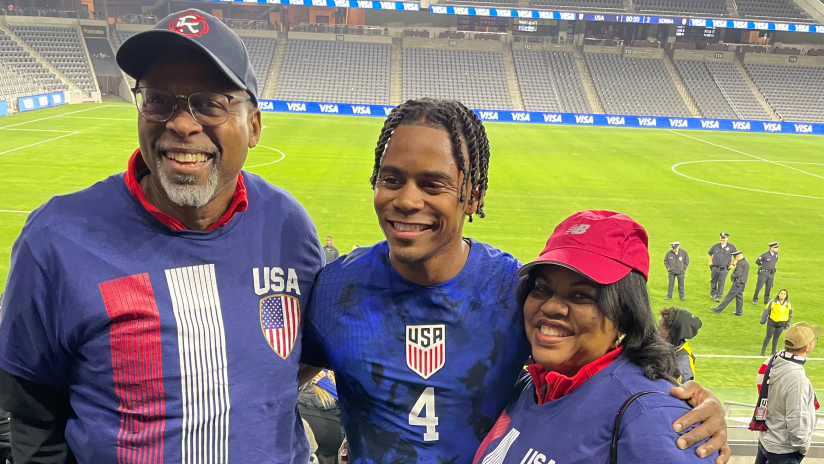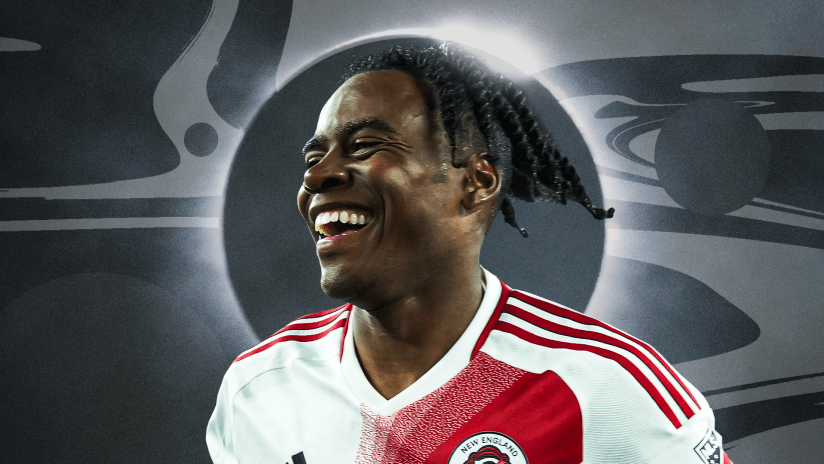Neither of my parents really knew anything about soccer.
I learned the game at my Elementary School, Sankofa Shule, in Lansing, Michigan. It is no longer operating, but it was an Afrocentric school, which meant we focused on African origins, heritage, and self-determination, and we had a teacher from Cameroon who was also the coach of the soccer team. He told my parents to sign me up and they did.
That is how I started playing soccer.
In those days, we were all just chasing the ball, trying to get it in the net. Afterwards, there was a baseball dugout that we'd run to and try to climb up as far as we could. I loved the team aspect, running around with my friends. But my coach told my dad early on, “This guy's going to be special."
And my dad’s an American football guy – he was a team captain at Western Michigan University – but those words sold him. He said, “All right. If he's going to be special in soccer, let's keep playing soccer.” I appreciated that my dad respected and supported my passion for soccer.
I still played other sports: basketball and baseball, track, and cross country, even bowling when I was really little. But those sports had pre-set plays. In soccer, there was so much creativity.
I could express myself on the field.
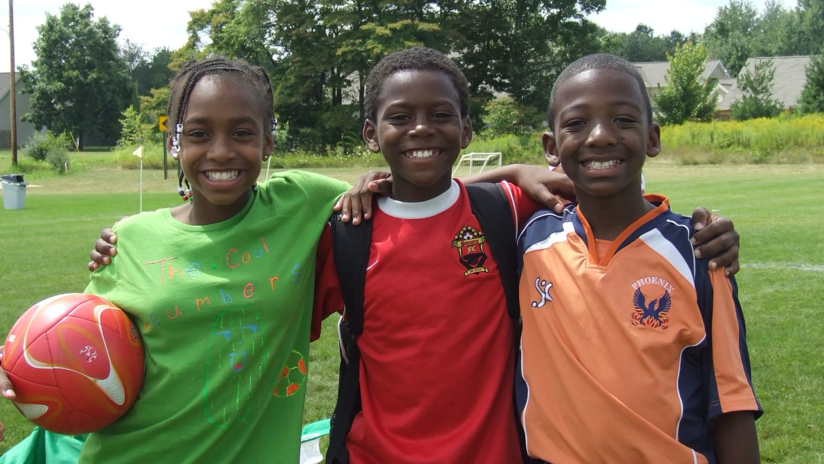
Lansing built
I loved growing up in Lansing. It was a really diverse town, and it has a rich sports history. I would go and watch future NBA players like Draymond Green and Denzel Valentine and compete at a super high level and think, “Wow, this is it.”
But in seventh grade, I switched over to the East Lansing School District for a better student-athlete experience and to eventually play soccer at a higher level with East Lansing High School. We won back-to-back state soccer championships in my junior and senior years, so it was a great decision I made to not switch to academy soccer in my junior year.
At East Lansing, I also met new people and communities that I built relationships with that will last forever. The Lansing School District was mostly black, mostly urban, and East Lansing was predominantly white. It was good to experience two different environments, and thankfully my academic achievements and sports skills were something that made the transition easier.
Prior to the start of my classes in East Lansing for seventh grade, I started bonding with my new classmates during cross country practice. After cross country, it was basketball season, meeting new people again, and then track season. Those experiences taught me that sports and common values can transcend boundaries.
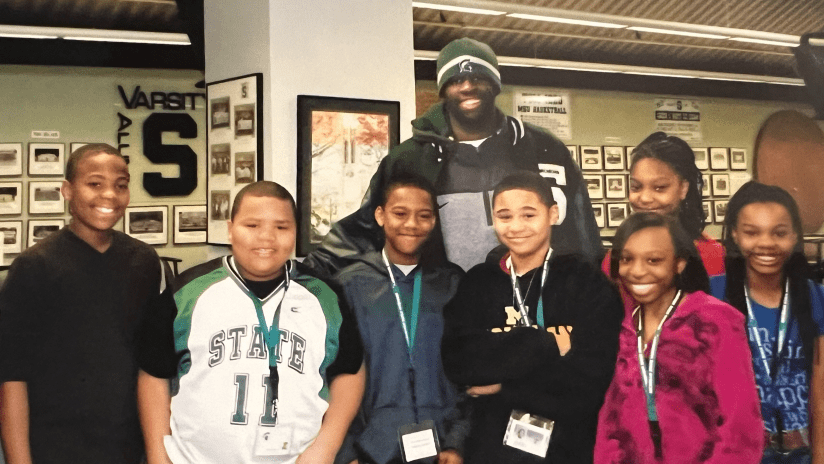
Staying local
It did not take long to know that I wanted to play professionally.
After my sophomore year, I had opportunities to play academy soccer, but for me, it was important to stay loyal to my high school team and club soccer team. Both teams had great seasons and were so close to winning state championships. And, for my parents, the everyday commute to play academy wasn't feasible.
Thankfully, just from playing high school and club, I got recruited to Michigan State, and that's where I wanted to go because that's where I grew up. That’s my hometown; I bleed green.
Looking back now, it's not a common pathway. But winning the back-to-back state titles, winning a Gatorade High School Player of the Year for the State of Michigan, and getting the title of Mr. Soccer in Michigan – those are a lot of amazing experiences I would not have had if I played academy.
Could I have maybe gone professional a little quicker or been a little more developed? It's hard to say now, but I'm grateful for the path that I took.
I also think I've shown, and other guys in the past have shown, there are a lot of high school and college players that have talent. Sometimes they just need opportunity. I'm thankful that when I was coming through, there was a big event like the MLS Combine. That helped me so much and I think was a big part of how I got here today.
I take a lot of pride in going from high school soccer to the US men’s national team. And it’s a path that also led me to my degree in Elementary Education from Michigan State, which has been very important to me.
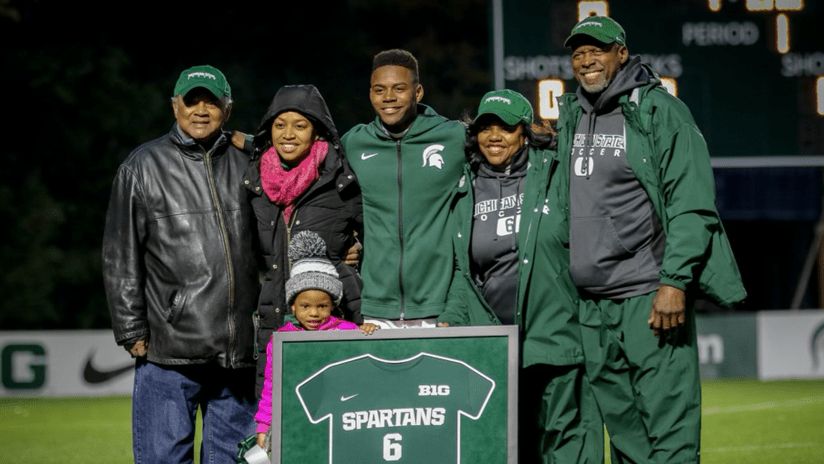
Breaking barriers
While I’m thankful for every opportunity I have had, I’ve also seen firsthand some of the barriers that have held others back. And the higher I got with soccer, the fewer Black players there were in the sport.
Growing up, I was fortunate my family was able to make a lot of sacrifices for me to play soccer.
Beyond the soccer fees, there's the travel, uniforms, and gear. Soccer is very expensive in this country, and it's very difficult. But if someone has the talent, we need to figure out a way to let them play. That player could be the next big thing. But if it's too expensive, then maybe we’ll never know.
Cultural barriers exist, too. Even today, commentators look at Black players and say, “Look at that guy. What an athlete.” The compliments are different.
I can make a great IQ pass, but the focus is, "Oh, look at the pace to get there." For me, yes, the pace is there. The pace is going to be there, and I'm happy that I have that attribute and that ability. But also, Black players can be creative. They can also have IQ. They can be well-positioned.
I do not want Black athletes to be in a box that just says fast and strong. It would be a shame to put a whole group of players in one category when there's so much diversity among everyone.
And studying elementary education, I’ve seen that unconscious bias exists in school systems as well. A teacher can look at a Black child and not push them because they don't think they have the potential to achieve at a higher level. That's unfortunate because instead of treating everyone as equal and pushing them to be the best they can be, biases put limits on students.
That’s not an easy thing to tackle because it's unconscious, but it can hold a lot of Black people back.
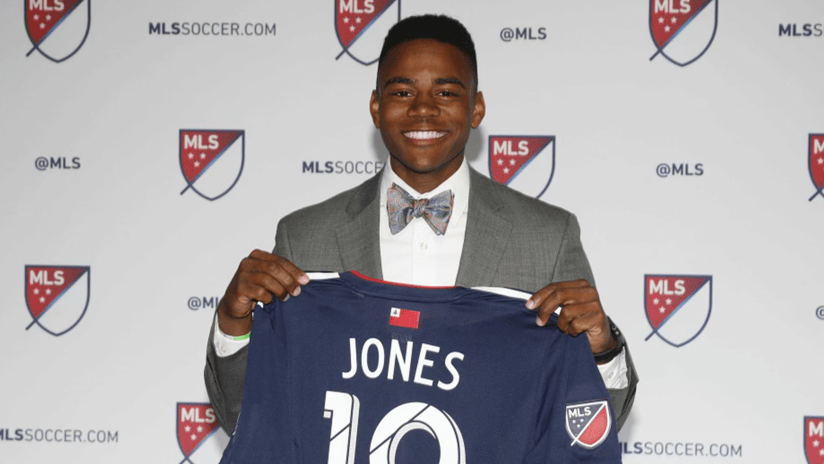
Giving back
In my life, I’m grateful I could always look to my parents for inspiration.
My dad instilled hard work and perseverance. Whenever I could not get something, he’d say, “No. Keep trying. Keep trying.” And he taught me to believe in myself. He would tell me, “You're the best in the world.” Having that strong self-belief was super important. It is something he still tells me to this day.
And my mom held down a great job since college and through five different pregnancies. She is the rock for our family. Even though she worked so hard, she was always there to support every game that she could, and she made sure my sisters and I supported each other at our different events.
She also gave me a lot of my morals and my faith.
That faith is the inspiration for my community service work. Growing up, I was in an organization called Jack and Jill of America, Inc. and I started volunteering at a young age and realized the privileges that I had and the importance of giving back to less fortunate people, not only with money but with time.
With the New England Revolution, it has been through the Bible Society group that we have. It started with my former teammate Teal Bunbury, and I am trying to continuously work on how to show God's love in practical ways to the community. That’s how we came up with the Back-to-School Drive, which was right up my alley since I went to school for education.
For families that may not be able to afford the new backpack or clothes for school, we were able to bless them with $300 gift cards to Target to take care of whatever it is they might need.
And we did the Turkey Club Fundraiser, too. For people who may not have the funds to have a great meal, we could bless them with food, not only to eat at the Providence Rescue Mission, but to take home for a week as well to have a Thanksgiving meal with their family.
When you are an athlete, you have a platform, and I think it's important to leverage that to try to inspire change. I strive to be a role model for all youth, aspiring soccer players, Christians, and especially my Michigan and Boston fans.
There are so many communities that I represent, and I do not take that lightly.
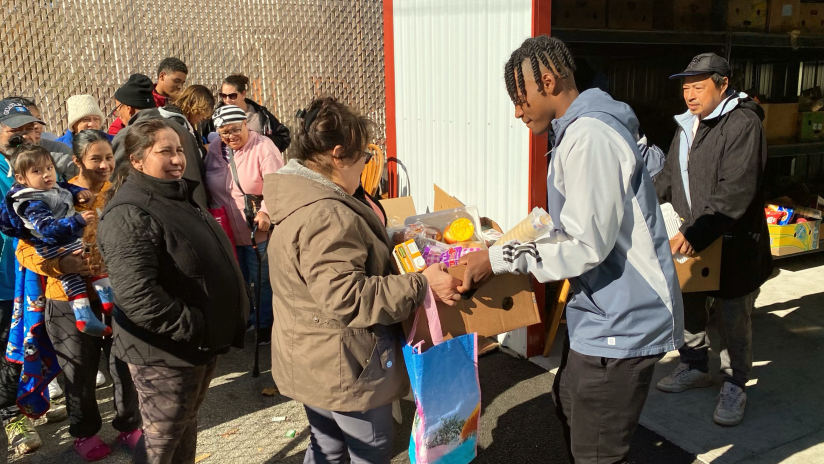
The next level
I don’t want to put limits on who I can be as a player.
Last year was difficult for our team. Bruce Arena had been there for so many years and we had a really good thing going. We won a Supporters’ Shield with him in 2021 and felt unlucky not to win MLS Cup. Going into 2023, we had a lot of similar pieces, and we were second in the East and then everything changed, including the team’s coaches.
It was super unfortunate, but we had to pivot. We had to persevere. Although we did the best we could, the season did not unfold how we wanted.
But we still qualified for Concacaf Champions Cup, so that’s a positive. Caleb Porter has come in and done a really good job, too. He has a strong focus on team identity and team culture. It’s been great.
Individually, I had a breakout year in 2021, but I want to have a breakout, breakout year this year. I want to continue to be a lock-up defender, but in the final third, I want more production. I want goals and assists.
I want to be the best player I can be, and I feel like for me, that means MLS All-Star, pushing for Best XI, maybe Defender of the Year. There are a lot of opportunities with the national team, too, so I'm looking to be involved as much as I can.
And I want to be part of the roster for the 2026 World Cup.
I have numerous personal goals, but my biggest focus is on team success. We are in the running for five trophies this year. We want to win all five.
